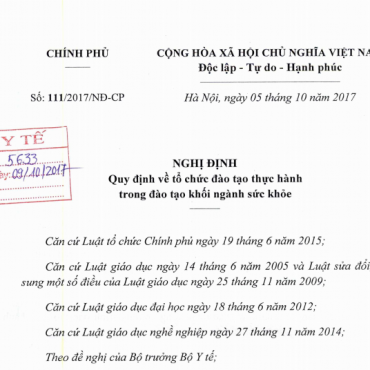Patients testing positive for COVID-19 a second time may not be contagious, research indicates
The Hill (5/19, Weixel) reports that “researchers in Korea found evidence that patients who test positive for COVID-19 a second time aren’t capable of infecting others, and may have neutralizing antibodies that protect them from getting sick again.” The scientists from the Korean Centers for Disease Control and Prevention “studied 285 patients who had survived COVID-19, but subsequently tested positive after multiple negative tests showed they had supposedly recovered.” The researchers “found a total of 790 contacts, none of whom tested positive as a result of being exposed to the ‘reinfected’ patients.”
NIH will study COVID-19 effect on pregnancy outcomes in United States
Reuters (5/19) reports “the National Institutes of Health (NIH) said on Tuesday it will study whether changes to the health care delivery system implemented during the COVID-19 pandemic have led to more pregnancy-related complications in the United States.” The NIH “study will also assess the risk of pregnant COVID-19 patients transmitting the virus to their fetus, and monitor the newborns until they are discharged from the hospital.”
Children with suspected COVID-19-related syndrome need immediate attention, physicians say
CNN (5/19, Fox) reports that “kids who may have multisystem inflammatory syndrome in children, or MIS-C, a troubling complication of [COVID-19] infection, need immediate attention and will probably need to be hospitalized, doctors said Tuesday.” The syndrome’s “symptoms do not look like the classic symptoms of coronavirus and may mostly include stomach pain and vomiting, along with fever and perhaps a rash, the experts told other doctors during a meeting Tuesday organized by” the CDC.
AMA president “extremely worried” about second wave of coronavirus
In a Bloomberg (5/19) podcast, American Medical Association President Patrice A. Harris, M.D., M.A., “provides a coronavirus update and says she’s ‘extremely worried’ about a second wave of the virus.” She said, “We’ve been concerned about premature re-openings. Especially without regard to data and metrics.” Dr. Harris continued, “It’s so important...that there are metrics in place to review the number of hospitalizations, not just the number of positive cases. ... We need this data by zip code so that we can target interventions.”
U.S. births continued to fall last year, CDC data indicate
The AP (5/19, Stobbe) reports that data released by the CDC indicate that “U.S. births continued to fall last year, leading to the fewest number of newborns in 35 years.” The agency “found the number of births fell about 1% from 2018, to about 3.7 million.” Additionally, “birth rates continued to fall for teen moms and for women in their 20s.”
U.S. News & World Report (5/20, Galvin) reports, “The preterm birth rate rose for the fifth year in a row, reaching 10.23%, while the cesarean section rate fell to 31.7% from 31.9%.” Meanwhile, “the low-risk C-section rate – measuring C-sections among women giving birth for the first time to a single baby, born after reaching term and in the head-first position – fell to 25.6% from 25.9%.”
J&J to stop selling talc-based baby powder in U.S., Canada
The New York Times (5/19, Hsu, Rabin) reports, “Johnson & Johnson is discontinuing North American sales of baby powder made with talc, a product at the center of nearly 20,000 lawsuits filed by cancer patients.” Last year, the company “recalled 33,000 bottles of baby powder after the Food and Drug Administration said it discovered evidence of chrysotile asbestos, a carcinogen, in a bottle purchased from an online retailer. Weeks later, the company said that multiple tests of the same bottle came up clean.”
Reuters (5/19, O'Donnell) reports Johnson & Johnson said on Tuesday that this “was part of a broad reassessment of its consumer product portfolio prompted by the coronavirus pandemic.” The company “said it would wind down sales of the product, which makes up about 0.5% of its U.S. consumer health business, in the coming months, but that retailers will continue to sell existing inventory.” The company “faces...lawsuits from consumers claiming its talc products, including Johnson’s Baby Powder, caused their cancer. J&J has consistently defended the safety of its talc products and said it remains confident in their safety.”


 ALSO IN THE NEWS
ALSO IN THE NEWS

 TUESDAY'S LEAD STORIES
TUESDAY'S LEAD STORIES















 PUBLIC HEALTH
PUBLIC HEALTH











